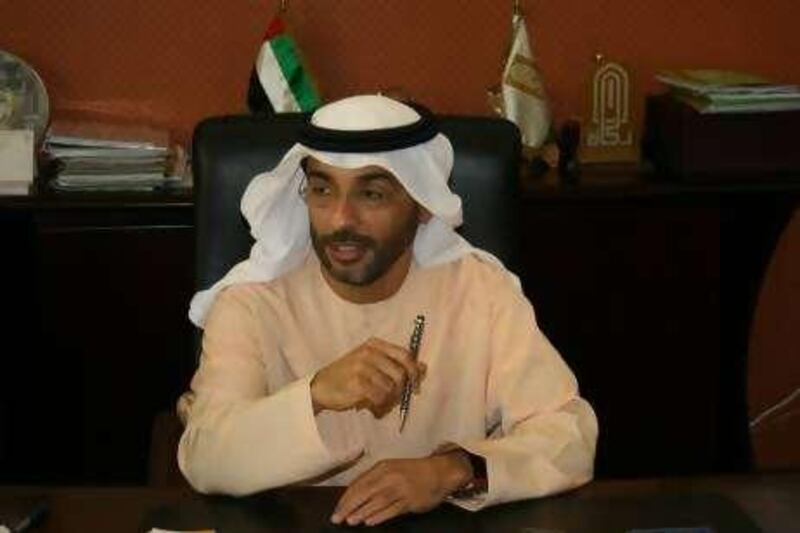ABU DHABI // Official zakat contributions doubled in the first half of the year to just more than Dh15 million, according to figures announced yesterday. Donations soared from less than Dh8m in the same period last year. The number of people contributing to the Zakat Fund, the government body that distributes alms revenue, also rose by 25 per cent. If the trend continues, the fund could be heading for record contributions during the holy month of Ramadan, when many Muslims choose to pay the annual tax, and charity donations spike.
Last year the fund brought in Dh60m. It will announce its target for Ramadan early next month. Abdullah al Muheiry, the fund's secretary general, said the increase was due to greater trust in the fund, which in turn flowed from "transparency through regular reports, with which we are engaging zakat contributors to inform them of the fund's spending". "Money is not reduced by charity," said Mr al Muheiry, referring to a saying by the Prophet Mohammed. "Organisations and individuals that maintain the zakat, God blesses them in their money."
Muslims believe that doing good and adhering to the pillars of Islam has hidden benefits, he said. "From our side, we tried increasing transparency, the quarterly reports to donors, media campaigns and engagement," he added. Zakat is the third pillar of Islam, mandatory for every Muslim who is financially able to contribute. It is calculated at 2.5 per cent of financial assets, but has different rates for a variety of other sources of wealth, such as livestock and minerals.
The proliferation of media, from religious television programmes to text messages, that inform individuals of their zakat duties has contributed to a "religious awakening", said Khaled Abdul Alim, a prominent Islamic cleric based in Dubai. Previously, some Muslims did not pay the annual tax because they contributed to charities throughout the year, he said. That missed the point that zakat is an obligation, not an option, he said.
In addition, rich Muslims may perceive economic crises as punishment from God and seek to absolve their sins by paying off the zakat, Mr Abdul Alim said. Officials at the Zakat Fund regularly visit prominent donors such as sheikhs, government officials and businessmen. The fund issues regular reports revealing revenue and expenditure to donors, and spreads awareness of its projects. A legal committee within the organisation, comprising top Islamic scholars from around the country, determines whether zakat money is being spent legally.
But despite the rise in contributions, people are still not giving enough, Mr al Muheiry said. "The revenue does not equal the amount of money being invested in the country," he said. "It is important to increase zakat revenues to match the increase in the deserving." The deserving, under sharia, include the needy who fall under a minimum threshold of annual income, families that are too proud to ask for monetary assistance, and individuals who are unable to pay off their debts.
"There are many people who do not pay the zakat because of ignorance or stinginess," said Dr Abdul Alim. Many still do not trust charities and prefer to give out money themselves to the needy, he said. The fund has other programmes that assist the families of inmates and pay for the treatment of people with a range of serious illnesses. One project called iqra that pays for the education of school and college-age students.
In last week's Friday sermon, worshippers were urged to use the fund as the method of choice to distribute money collected from zakat. "The fund collects donations and gives it to those who deserve it through studied standards and regulations," it was said. The Zakat Fund was created in 2003 by the late Sheikh Zayed, founder of the UAE. In March, a survey by YouGov Siraj showed that a third of Middle East residents, most of them from the UAE, did not trust charity groups, due to what they claimed was poor communication and transparency.
Dr Abdul Alim said he applauded the fund's method of distributing contributions, as individuals often spent zakat on people who are not among those recogised as deserving. kshaheen@thenational.ae







